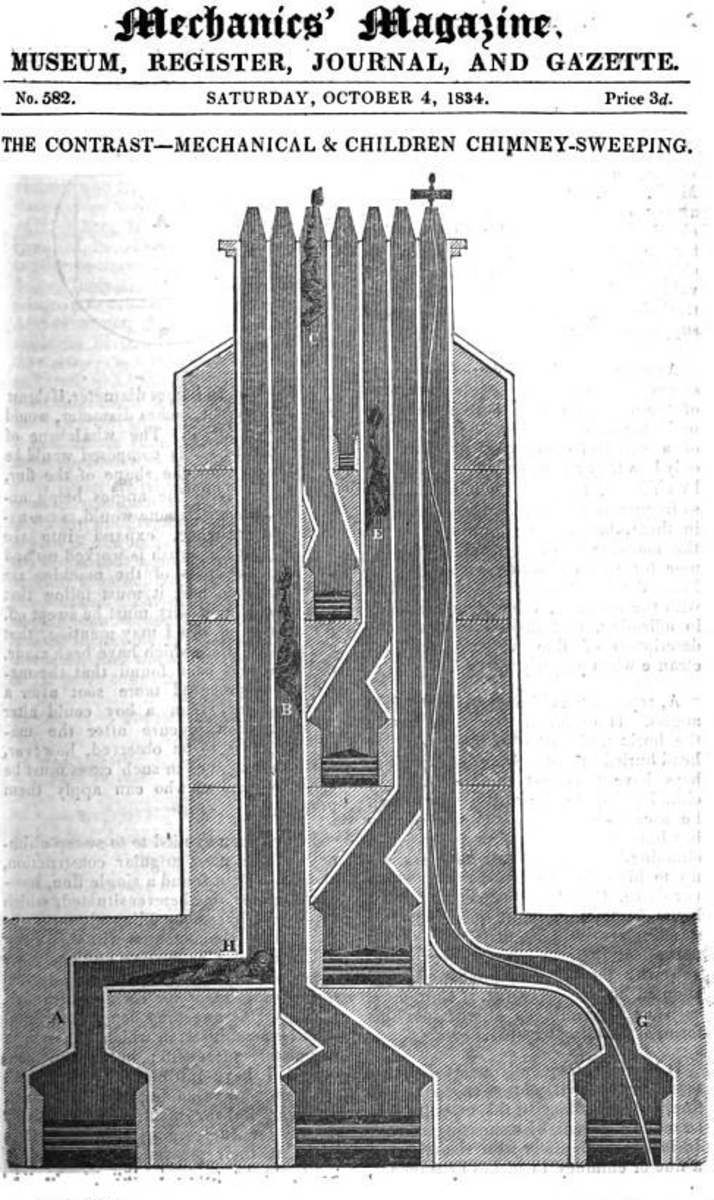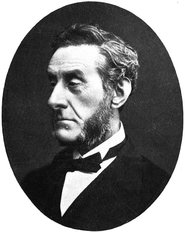"After Lord Shaftesbury discovered a boy chimney sweep living behind his house on Brock Street, he rescued him and sent him to the 'Union School at Norwood Hill, where, under God's blessing and special merciful grace, he will be trained in the knowledge and love and faith of our common Saviour.'" (https://en.wikipedia.org/wiki/Anthony_Ashley-Cooper,_7th_Earl_of_Shaftesbury)

Diagram of a four-story chimney courtesy http://hubpages.com/education/The-History-of-Children-at-Work-The-Poor-Life-of-An-Apprentice-Chimney-Sweep#slide6797335.
In 1833, Anthony Ashley-Cooper, the 7th Earl of Shaftesbury, attended the funeral at Westminster Abbey of William Wilberforce, a reformer who had campaigned tirelessly to abolish slavery in Britain. Lord Shaftesbury, a Christian evangelical, believed in putting his faith into action. "Speak up for those who cannot speak for themselves, for the rights of all those who are destitute." (http://www.cmf.org.uk/publications/content/?context=article&id=26302)
Neglected and bullied by his father, the young Anthony was not the type you would think would go on to be a leader in social reform. However, a kind maid named Maria Millis introduced him to the Gospel and changed his life forever. Not unfamiliar with emotional pain, he devoted his life to helping others.
Elected as an MP in the 1820's, Lord Shaftesbury looked at reforming the lunacy laws as well as the labour laws. "After Lord Shaftesbury discovered a boy chimney sweep living behind his house on Brock Street, he rescued him and sent him to the 'Union School at Norwood Hill, where, under God's blessing and special merciful grace, he will be trained in the knowledge and love and faith of our common. Chimney sweeping was a dangerous occupation; exposure to hot soot caused scorched skin, eyes, throat, scrotal cancer and even suffocation. In 1840, Shaftesbury pushed for legislation outlawing the employment of children as chimney sweeps, but many companies ignored the ban.
Twelve year old George Brewster was forced by his master to clean the chimney at Fulbourn Hospital resulting in his death. In 1875, the Chimney Sweepers Act was passed as a direct result of George Brewster's tragedy which enforced the original 1840 Act.
Lord Shaftesbury remained humble to the end. Offered a Westminster Abbey funeral in 1885, he declined. The state occasion was attended by an unusual crowd: costermongers, flower girls, boot-blacks, crossing sweepers, factory hands and, yes, chimney sweeps. Shaftesbury, a constant advocate for the destitute, would go down in history as the "Poor Man's Earl".
For more information, read Shaftesbury: The Great Reformer by Richard Turnbull.

Lord Shaftesbury courtesy https://www.christianhistoryinstitute.org/it-happened-today/4/28/.
No comments:
Post a Comment